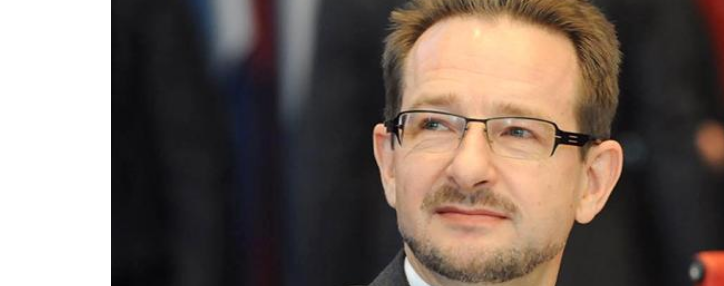Difficult compromises needed for comprehensive peace in Karabakh, OSCE head says
02.11.2018,
16:44
The Organization for Security and Cooperation in Europe (OSCE) expects the parties to the Nagorno-Karabakh conflict to show will in order to make progress in the settlement of the Nagorno-Karabakh conflict, the Secretary-General of the organization Thomas Greminger was quoted as saying by Russian RIA Novosti news agency.

YEREVAN, November 2. /ARKA/. The Organization for Security and Cooperation in Europe (OSCE) expects the parties to the Nagorno-Karabakh conflict to show will in order to make progress in the settlement of the Nagorno-Karabakh conflict, the Secretary-General of the organization Thomas Greminger was quoted as saying by Russian RIA Novosti news agency.
He added that difficult compromises are needed for achieving a comprehensive and long-lasting peace.
He said all the parties to the conflict need to work in a constructive manner in order to avoid whipping up bellicose rhetoric and reduce tensions on the contact line. He said also he believes that time should be used to create an atmosphere conducive to constructive negotiations. Greminger was speaking at a press conference after a meeting with Russian Foreign Minister Sergey Lavrov.
According to him, such an atmosphere is essential for all the parties to make difficult compromises that are needed to achieve a long-term and comprehensive peace.
The Nagorno-Karabakh conflict erupted into armed clashes after the collapse of the Soviet Union in the early 1990s as the predominantly Armenian-populated enclave of Azerbaijan sought to secede from Azerbaijan and declared its independence backed by a successful referendum.
On May 12, 1994, the Bishkek cease-fire agreement put an end to the military operations. A truce was brokered by Russia in 1994, although no permanent peace agreement has been signed. Since then, Nagorno-Karabakh and several adjacent regions have been under the control of Armenian forces of Karabakh.
Nagorno-Karabakh is the longest-running post-Soviet era conflict and has continued to simmer despite the relative peace of the past two decades, with snipers causing tens of deaths a year. On April 2, 2016, Azerbaijan launched military assaults along the entire perimeter of its contact line with Nagorno-Karabakh. Four days later a cease-fire was reached. -0-
He added that difficult compromises are needed for achieving a comprehensive and long-lasting peace.
He said all the parties to the conflict need to work in a constructive manner in order to avoid whipping up bellicose rhetoric and reduce tensions on the contact line. He said also he believes that time should be used to create an atmosphere conducive to constructive negotiations. Greminger was speaking at a press conference after a meeting with Russian Foreign Minister Sergey Lavrov.
According to him, such an atmosphere is essential for all the parties to make difficult compromises that are needed to achieve a long-term and comprehensive peace.
The Nagorno-Karabakh conflict erupted into armed clashes after the collapse of the Soviet Union in the early 1990s as the predominantly Armenian-populated enclave of Azerbaijan sought to secede from Azerbaijan and declared its independence backed by a successful referendum.
On May 12, 1994, the Bishkek cease-fire agreement put an end to the military operations. A truce was brokered by Russia in 1994, although no permanent peace agreement has been signed. Since then, Nagorno-Karabakh and several adjacent regions have been under the control of Armenian forces of Karabakh.
Nagorno-Karabakh is the longest-running post-Soviet era conflict and has continued to simmer despite the relative peace of the past two decades, with snipers causing tens of deaths a year. On April 2, 2016, Azerbaijan launched military assaults along the entire perimeter of its contact line with Nagorno-Karabakh. Four days later a cease-fire was reached. -0-



